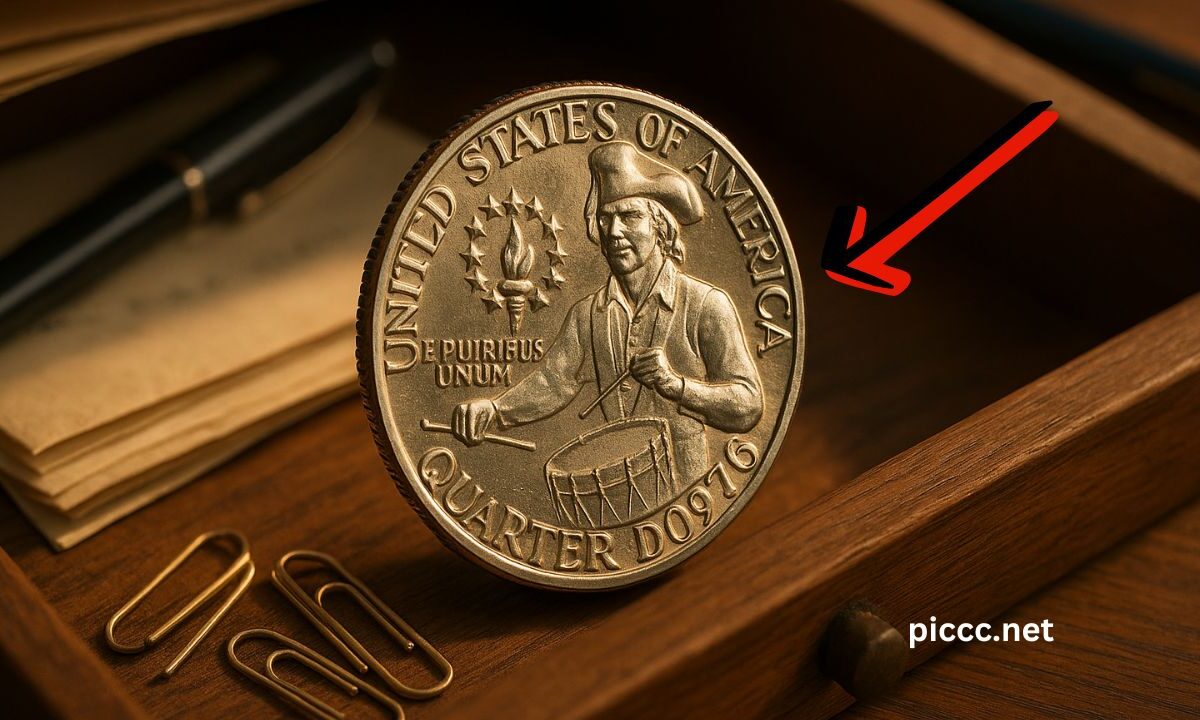In an extraordinary numismatic discovery, a rare 1976 Bicentennial quarter—stashed away in a desk drawer for decades—has fetched $2.5 million at auction. This sensational sale marks one of the highest valuations for a commemorative quarter in modern history, turning an ordinary coin into an extraordinary investment treasure.
What Made This Quarter So Valuable?
Bicentennial quarters were issued in 1975–1976, bearing the dual date “1776–1976” and featuring a distinctive colonial drummer boy design on the reverse. Millions were produced, but only a few hold significant value—particularly those struck in 40% silver, high grades, or featuring rare errors.
However, this particular specimen’s staggering value derives from an extremely rare combination: it is believed to be a prototype struck in 40% silver with deep cameo contrast and nearly flawless condition, making it one of the most elite Bicentennial quarter varieties .
Key Details at a Glance
| Feature | Description |
|---|---|
| Year Minted | 1976 (with dual date 1776–1976) |
| Composition | 40% silver (prototype, deep cameo) |
| Condition | Nearly flawless (deep cameo contrast) |
| Discovery | Found in desk drawer |
| Auction Sale Price | $2.5 million |
| Rarity Factor | Extremely limited prototype, collector grade |
The Coin’s Journey from Drawer to Auction Block
A casual search through family belongings led to this extraordinary find—turning a mundane coin into an iconic auction highlight.
Following authentication by expert graders and confirmation of its silver composition and cameo finish, it was presented to collectors and eventually sold for a record-shattering $2.5 million .
Why Bicentennial Quarters Are Still Popular with Collectors
- Historical significance: Commemorating the United States’ 200th anniversary with the unique drummer design.
- Limited special issues: Millions of copper-nickel versions exist, but only a subset were minted in 40% silver, especially for collectors
- Error varieties: A few coins bear doubled die, off-center strikes, or other mint mistakes that dramatically increase value—though none have officially surpassed this quarter’s sale price
If You Think You Might Have a Valuable Quarter
- Don’t clean it—even gentle polishing can severely reduce its value.
- Examine using a magnifying glass—look for silver appearance, mint marks, or minting errors.
- Seek professional grading/appraisal—trusted grading services can authenticate its rarity and grade.
- Store it properly, in a coin holder or sleeve, until authenticated.
The sale of the rare 1976 Bicentennial quarter for $2.5 million underscores the powerful appeal of numismatic rarity, condition, and historical significance.
From being forgotten in a desk drawer to becoming a million-dollar artifact, this coin exemplifies why collectors and treasure hunters alike continue to scour everyday change.
You could be sitting on your own piece of history—sometimes the most valuable things are hiding in plain sight.
FAQs
What makes a Bicentennial quarter worth millions?
Prototype 40% silver versions in flawless, deep cameo condition are exceedingly rare and highly prized by collectors.
How to spot a rare Bicentennial quarter?
Check for the dual date “1776–1976”, silver composition, cameo finish, mint marks (“S” for San Francisco), and mint errors.
Are common 1976 quarters worth anything?
Most circulated clad quarters still trade for face value, but high grades, proof sets, or silver versions can be worth dollars to hundreds—or much more if rare.

